The 15 Best Houseplants for Home Decor
Discover which are the best types of plants for each room of your home. There is a species of plant for all lighting and weather conditions, find which are the best for your spaces.
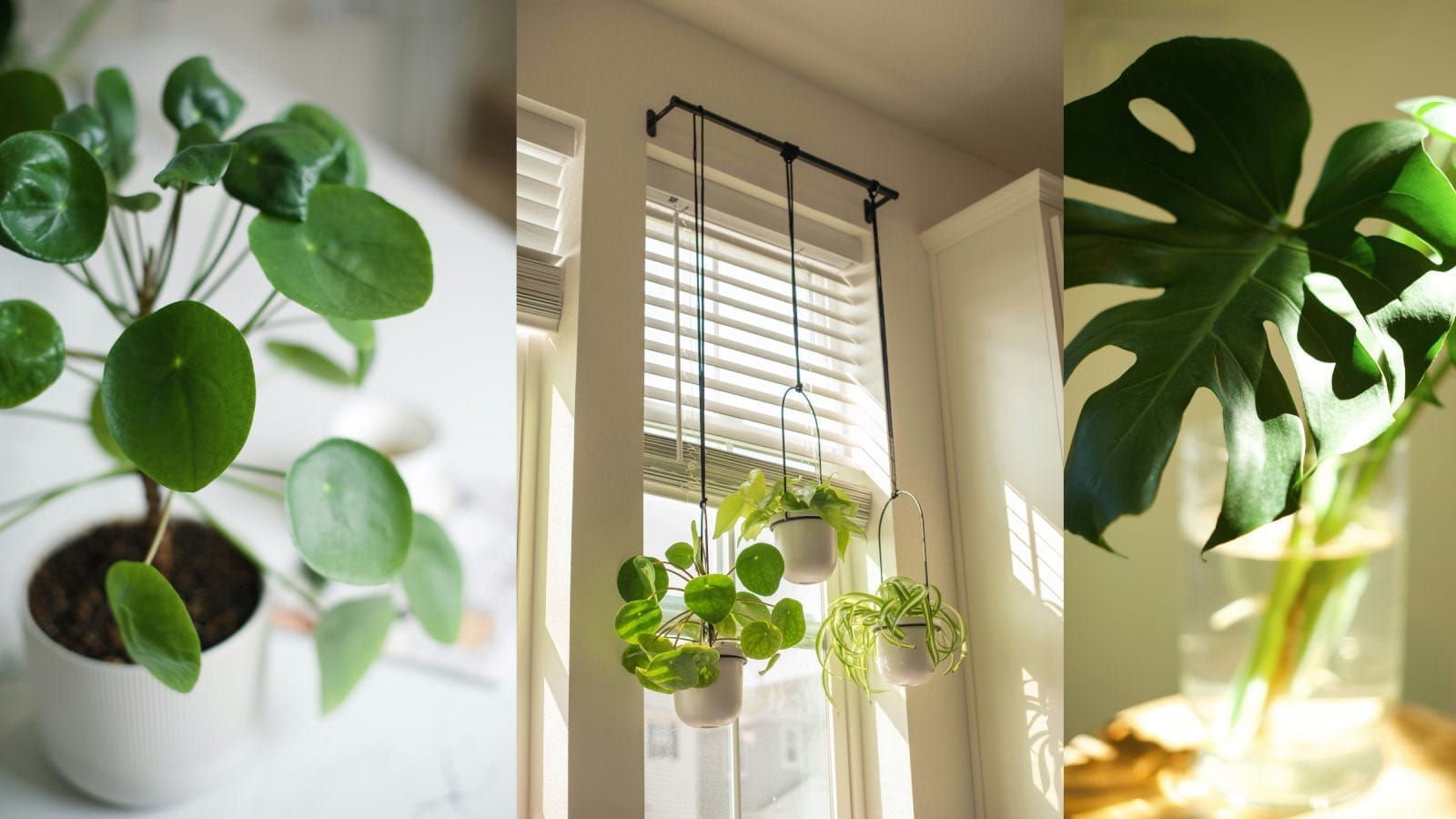
To make a home feel fresh, cozy, and welcoming, there's nothing better than indoor plants. Besides bringing life and color into your home, plants help purify the air by removing pollutants and regulating humidity levels in the driest spaces. Whether you have a small or spacious interior, there is a perfect plant for your home.
In this blog post, we’ll help you find out which are the best indoor plants for each space of your home, from those that adapt best to each area to the most decorative or easiest to care for.
Benefits of indoor plants
Having indoor plants at home is a sure bet. Colorful leaves, flowers, or beautiful organic shapes add a decorative touch to any space. But beyond their aesthetic appeal, plants offer a range of benefits you shouldn’t overlook.
- Improved air quality: Beyond recycling CO2, some indoor plants help filter other air pollutants, making the air healthier to breathe.
- Increased humidity: Plants release small amounts of water vapor, increasing humidity in drier interiors. In regions with very low humidity, this helps improve indoor air quality, comfort and well-being.
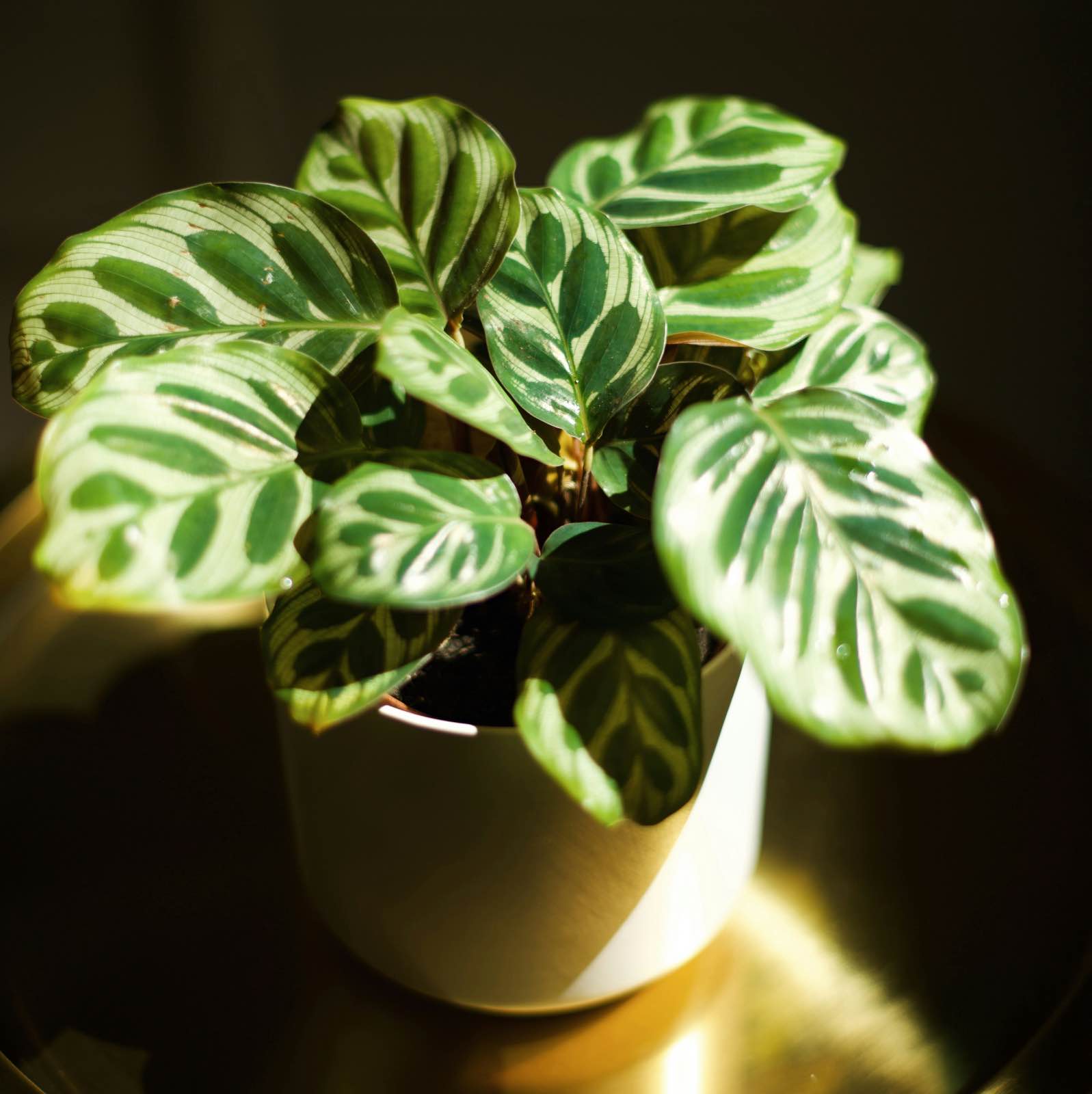
- Stress reduction: Having plants at home has a huge impact on our well-being. Their presence helps reduce anxiety levels, improve mood, and promote a more relaxed life. Additionally, plant care can become a rewarding hobby, positively impacting mental health.
- Aesthetic appeal: The green, maroon, or pinkish leaves of different plant species, along with their flowers and diverse shapes, add a natural touch that can transform the appearance of any interior.
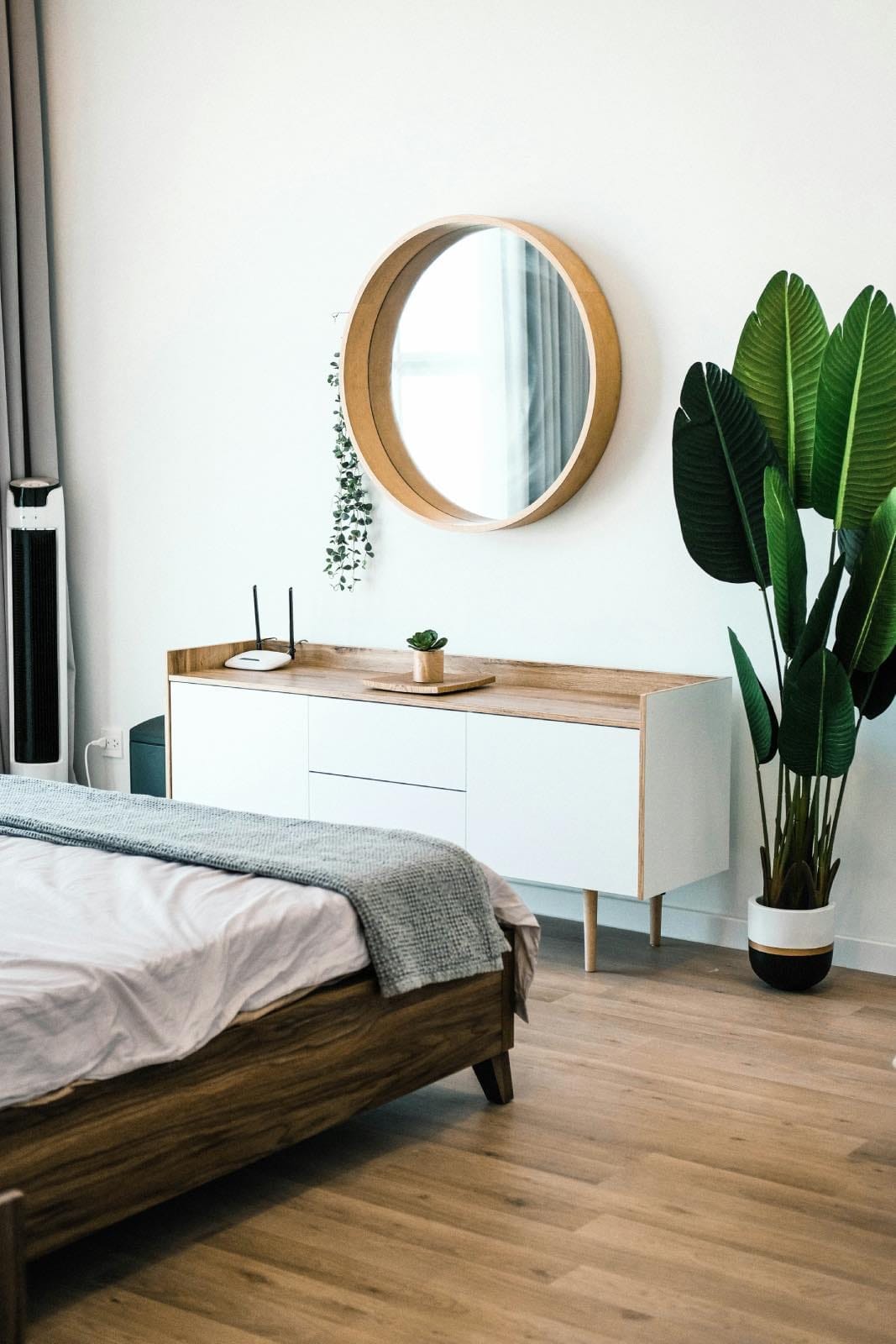
Where to place indoor plants in your home
The placement of indoor plants in your home depends on the care needs of each species. Always ensure you choose plants that adapt to the interior conditions, such as humidity, cold drafts, and most importantly, levels of natural light. Additionally, for different rooms, consider the available space and whether you want to make your plants a big feature of your decor.
- Living room: The living room is a perfect spot for large plants. Species like the monstera or kentia palm can take center stage in spacious interiors, bringing life to any environment.
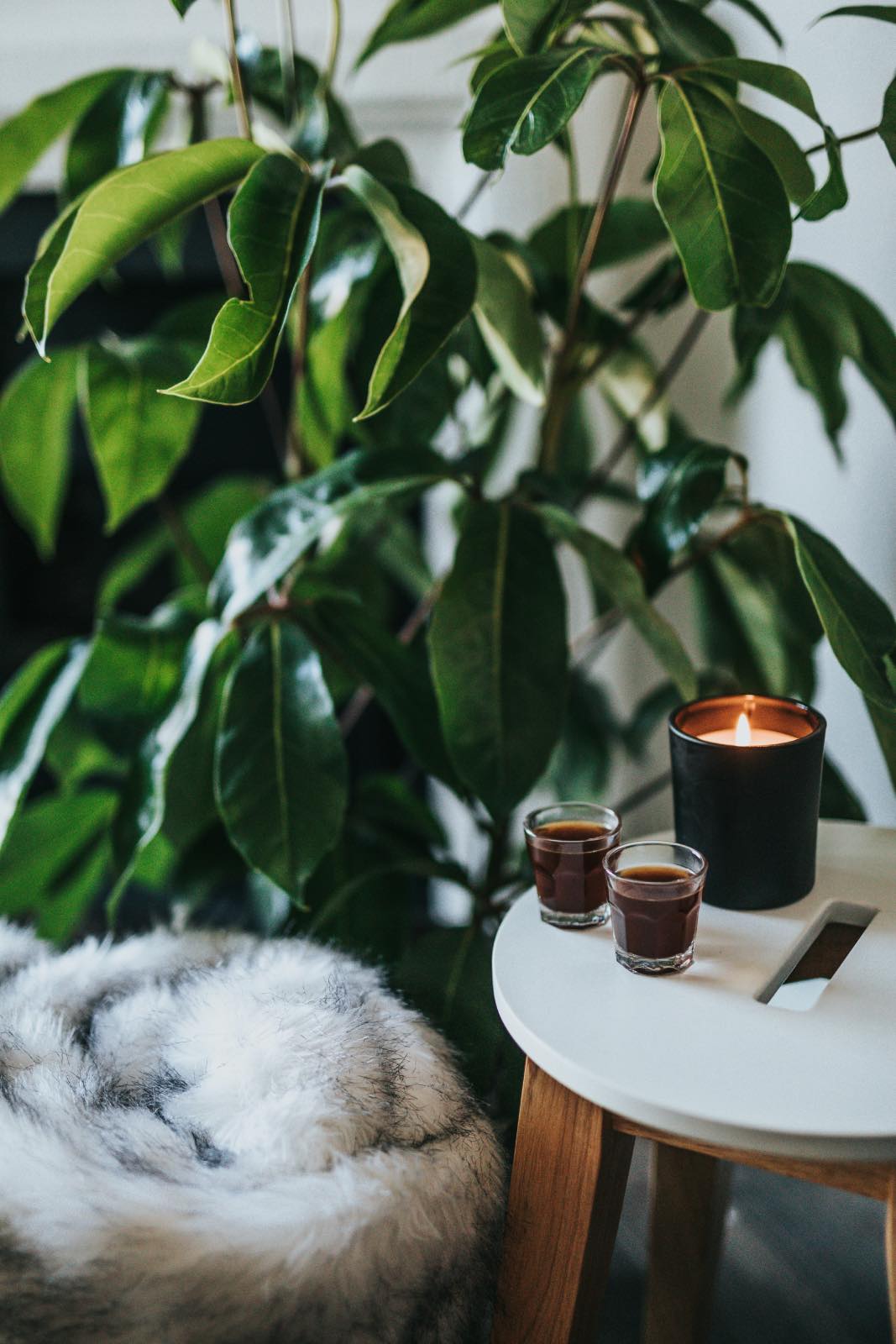
- Kitchen: Choose low-maintenance plants like aloe vera. These are easy to care for and adapt to different light and humidity conditions. You might also consider aromatic plants, which not only are decorative but can also be used in cooking.
- Bathroom: Opt for plants that thrive in high-humidity conditions, such as ferns, ivy, or even orchids, which are ideal for small spaces with limited natural light. Remember that all plants need at least a bit of indirect sunlight.
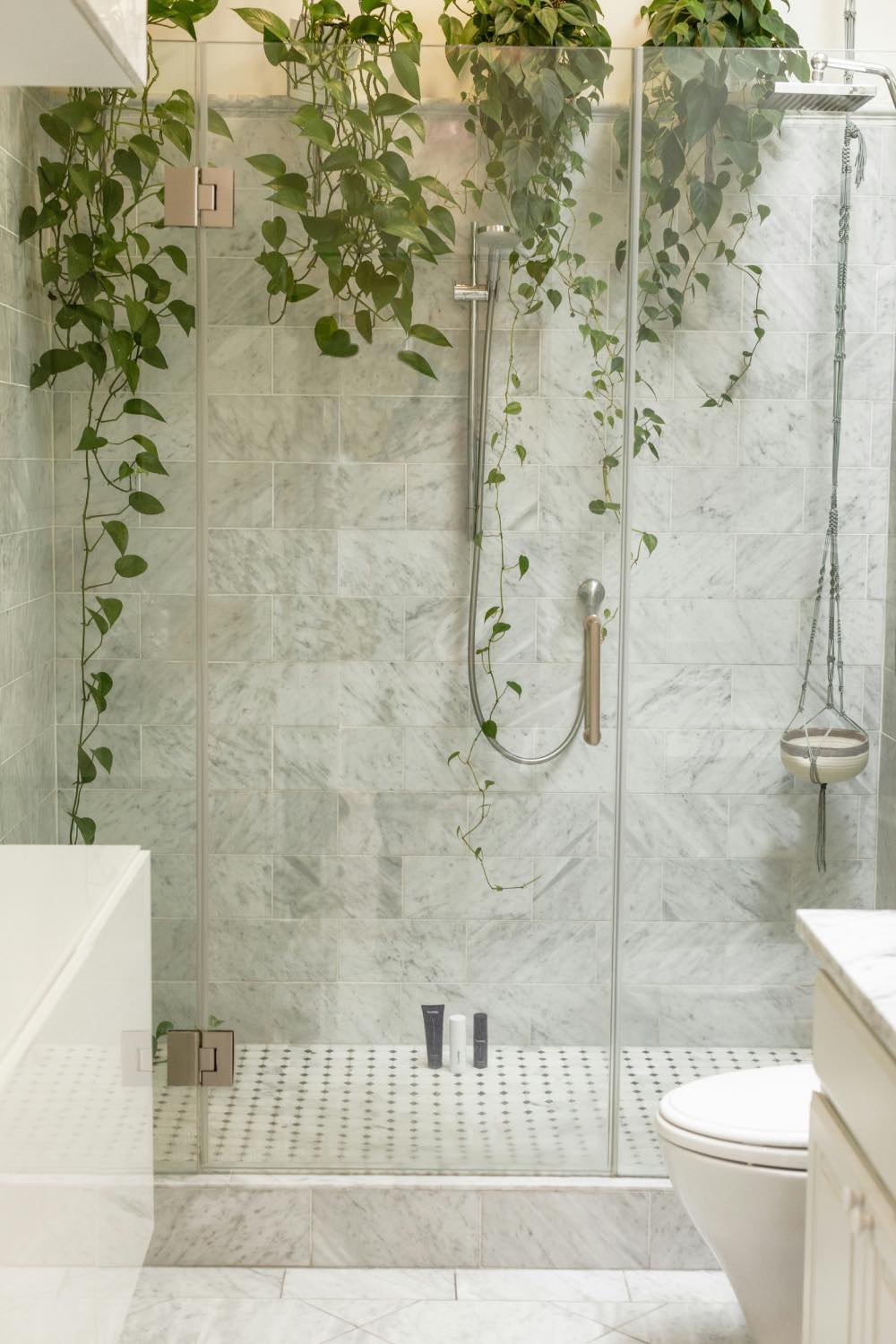
- Bedroom: Place plants like the sansevieria, which purifies the air and thrives in low-light conditions.
- Home office: Select a pothos or peace lily to add a calming, green touch to your workspace.
The most resilient and beautiful indoor plants
If you’re looking for hardy indoor plants that are both easy to maintain and attractive, there are numerous species that can be perfect for any home.
Here’s a list including some of the best indoor plant options, but always make sure their care needs align with your space and lifestyle.
Spider plant (Chlorophytum)
The spider plant is one of the easiest indoor plants to care for. Its striking long green leaves with white stripes look great in hanging baskets or elevated pots. It’s excellent for purifying the air and adapts well to different levels of natural light, tolerating low-light conditions and temperature changes.
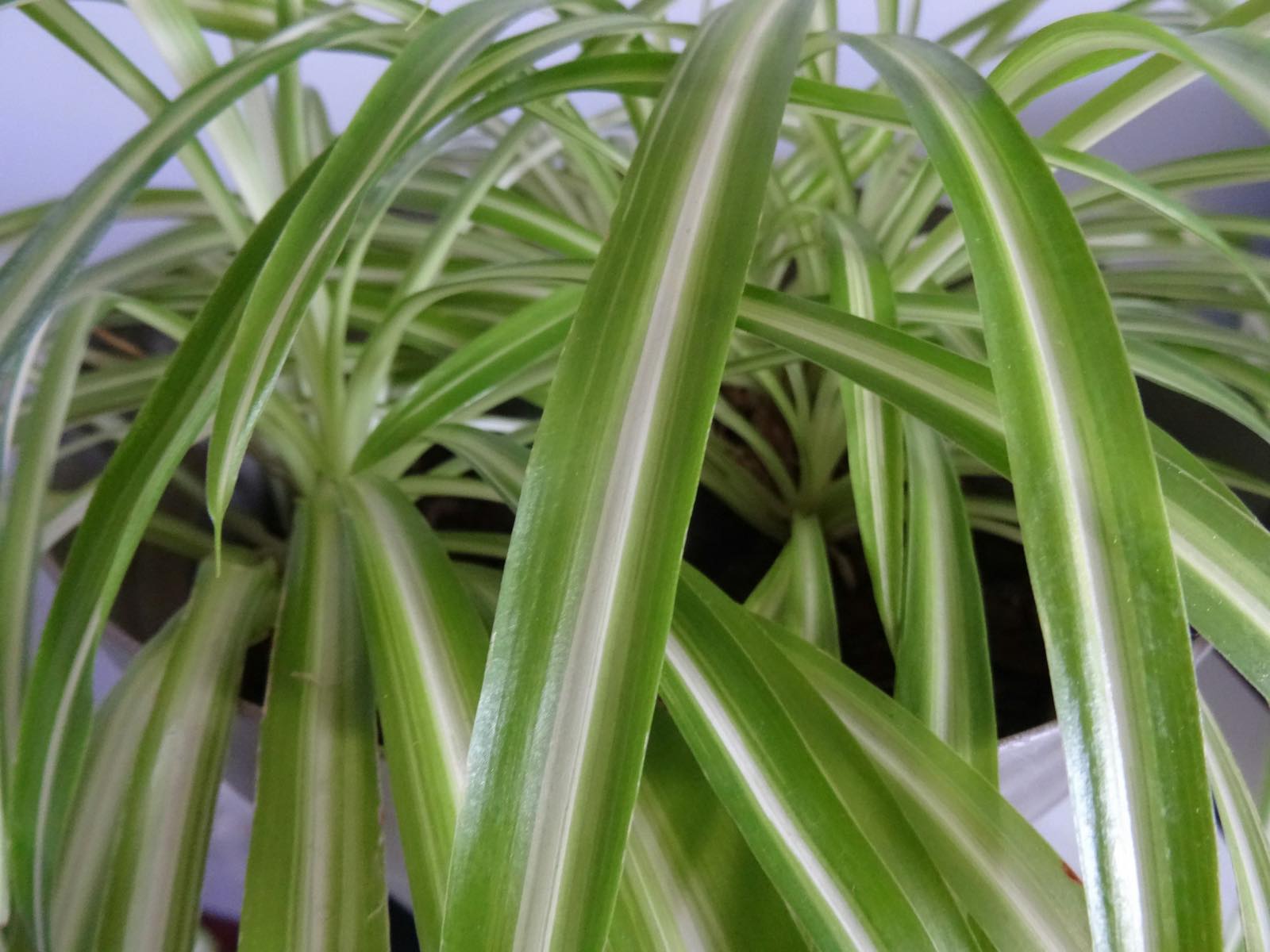
Fern
Ferns are a classic choice for interior design. Their lush foliage adds a fresh and vibrant touch to any space. They love humidity, making them ideal for bathrooms or kitchens, and require frequent watering to stay healthy.
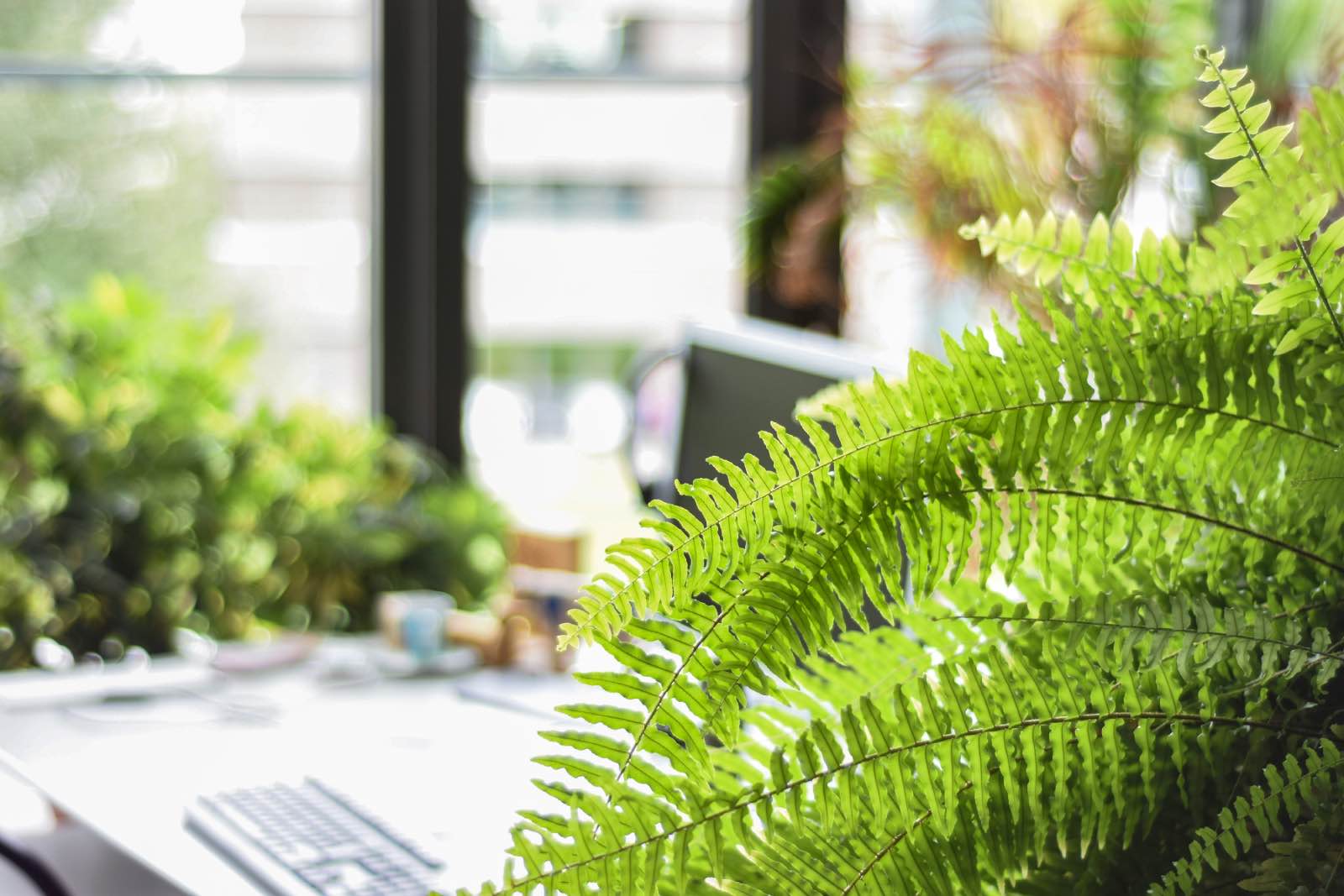
Ivy
Ivy is a versatile plant that grows well in hanging pots or climbing structures. Its shiny green leaves help purify the air, making it an excellent option for adding greenery to small spaces. Ivy adapts well to both bright interiors and low-light corners.
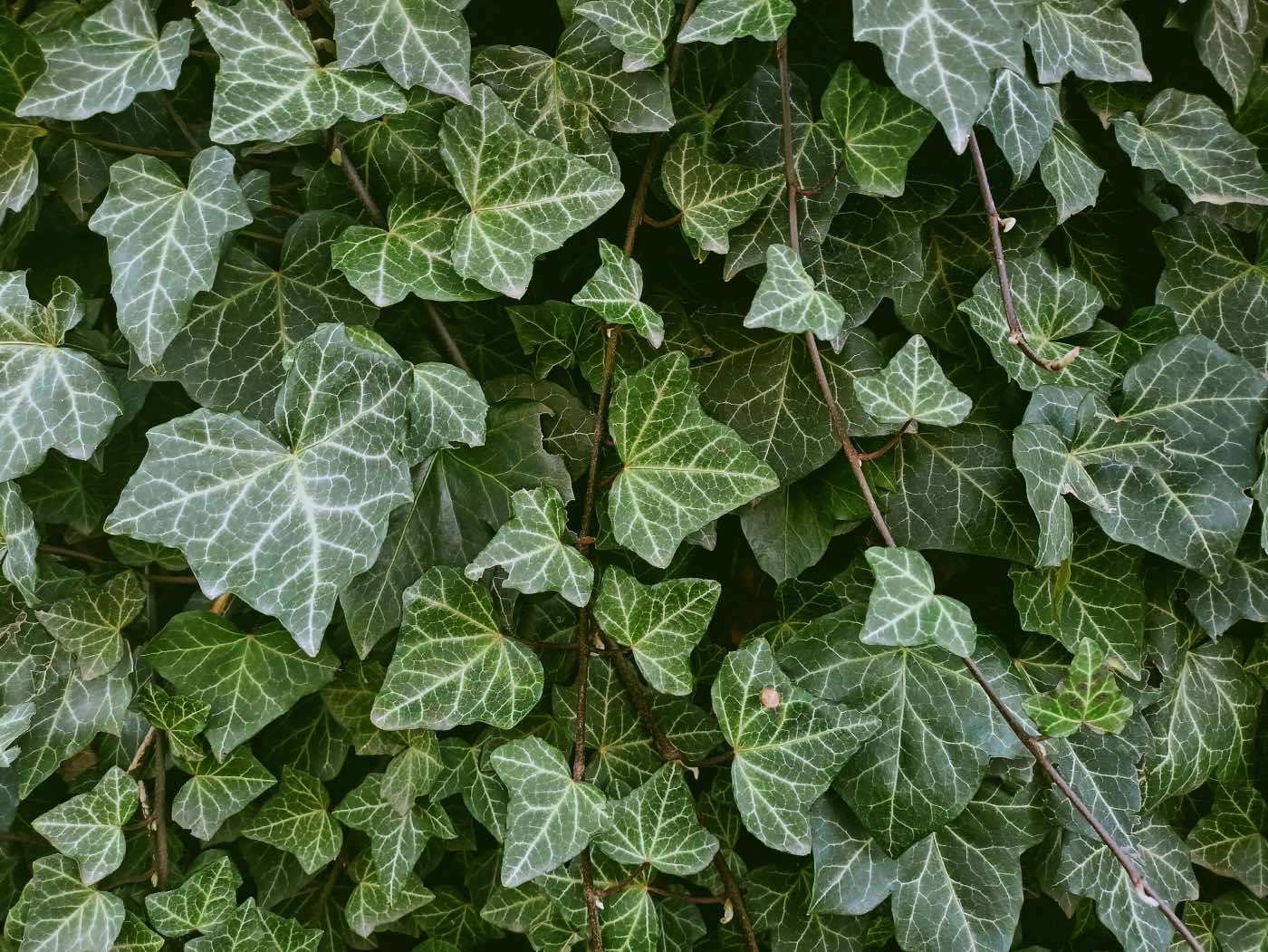
Money plant (Plectranthus verticillatus)
As its name suggests, this plant is associated with prosperity and good luck, so what better than to have a "money plant" at home? The Plectranthus or money plant is a fast-growing, low-maintenance indoor plant with fleshy green leaves. Place it in a spot with indirect light to ensure it grows strong and healthy. It requires moderate watering and is perfect for adding a fresh touch to any space.
Turn your ideas into 3D magic — no design experience needed.
AI is here to help.
Aloe vera
Aloe vera is one of the most well-known indoor plants due to its practical uses. In addition to being easy to care for, its leaves contain a gel with healing properties, making it unique among indoor plants. It requires only moderate watering and thrives in areas with good natural light. Its shape and color make it an attractive addition to any space.
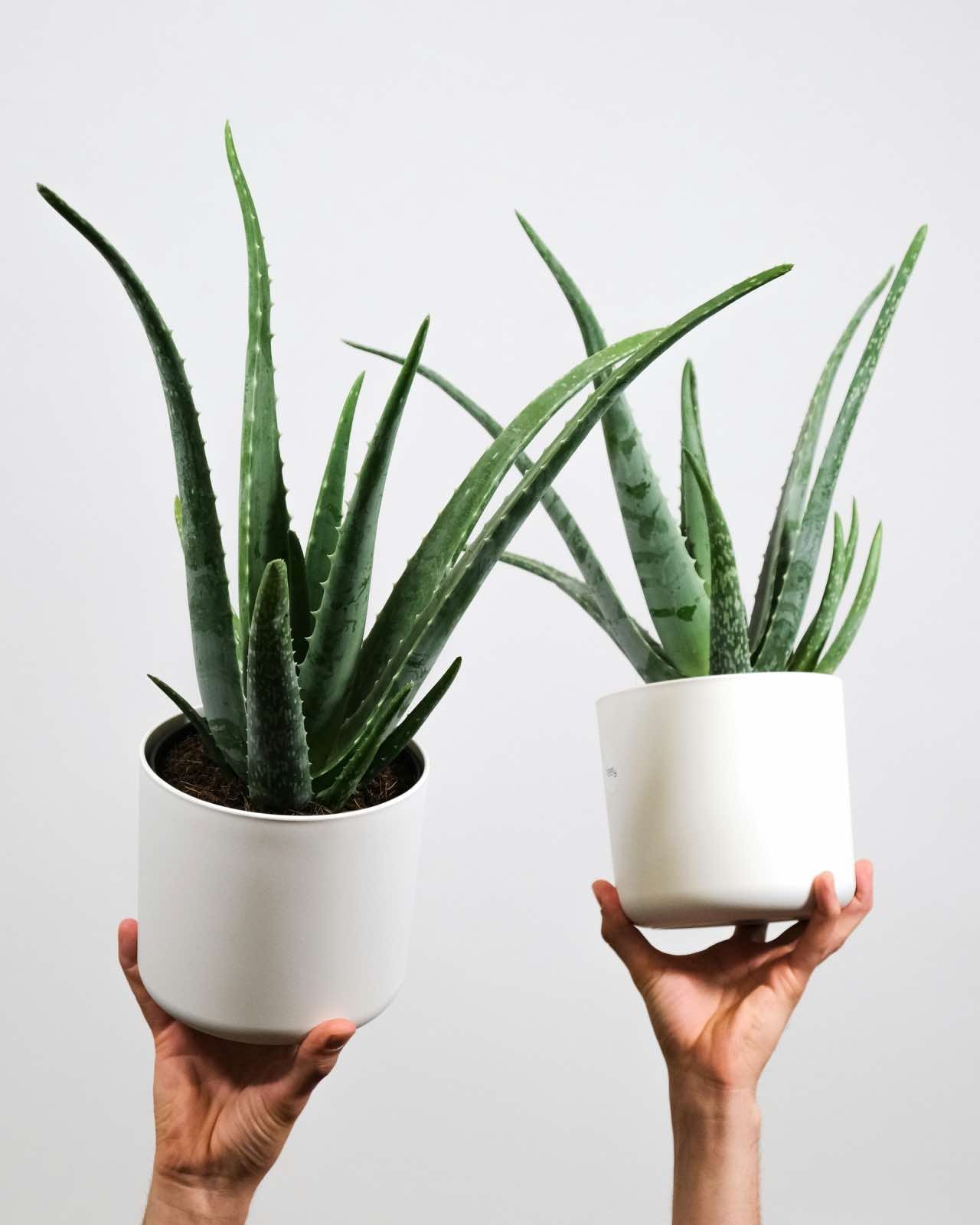
Pothos (Epipremnum aureum)
Pothos is one of the most resilient and low-maintenance indoor plants. It comes in a variety of types, with leaves ranging in color from dark green to yellow or white. It can grow well in hanging pots or as a climbing plant. It doesn’t require much light and can survive with occasional watering.
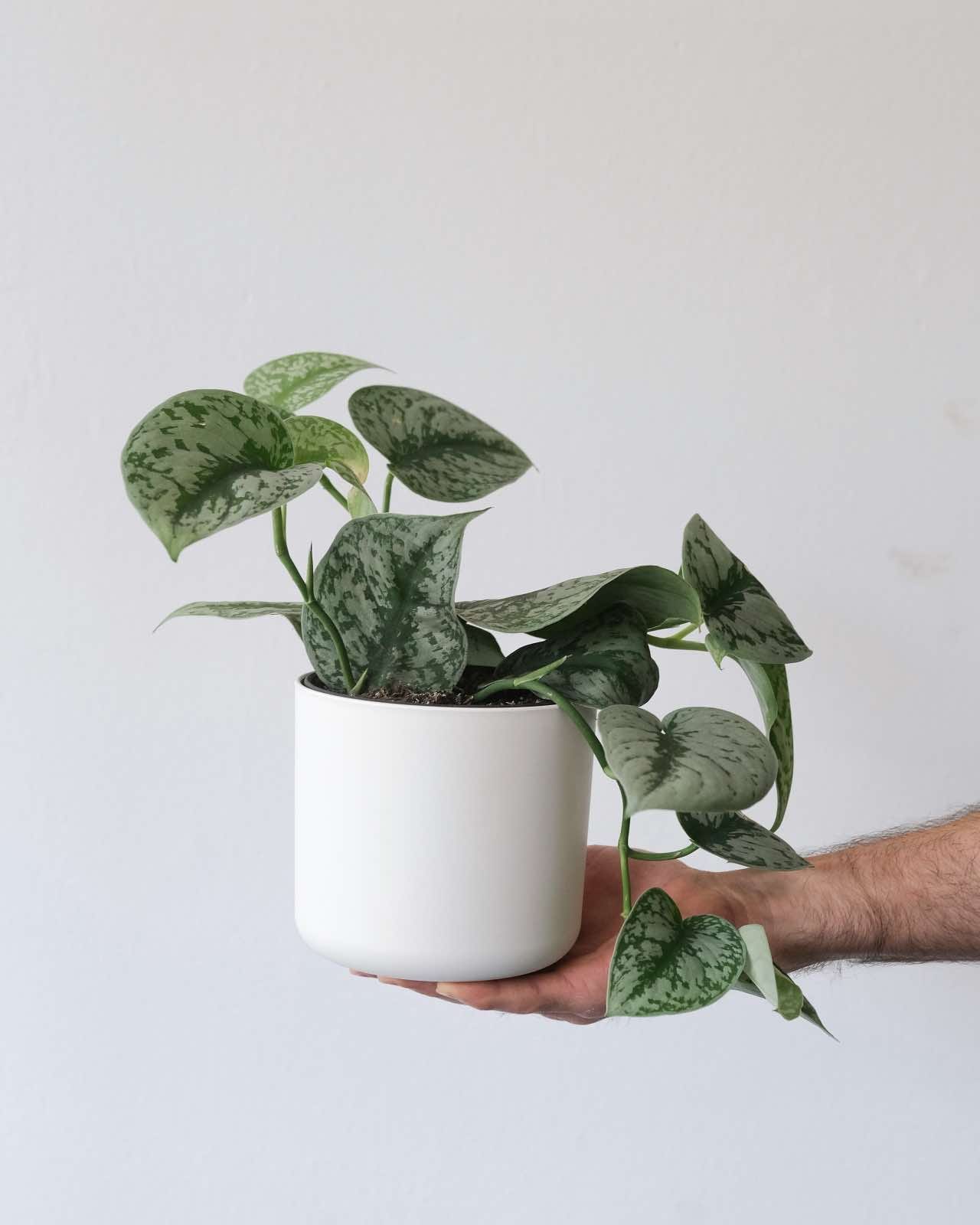
Peace lily (Spathiphyllum)
The peace lily is renowned for its elegant white flowers and shiny green leaves. It’s an excellent choice for those looking for a beautiful plant that is also easy to care for and capable of purifying indoor air. It requires moderate watering and prefers low light, making it perfect for any dimly lit corner of the house.
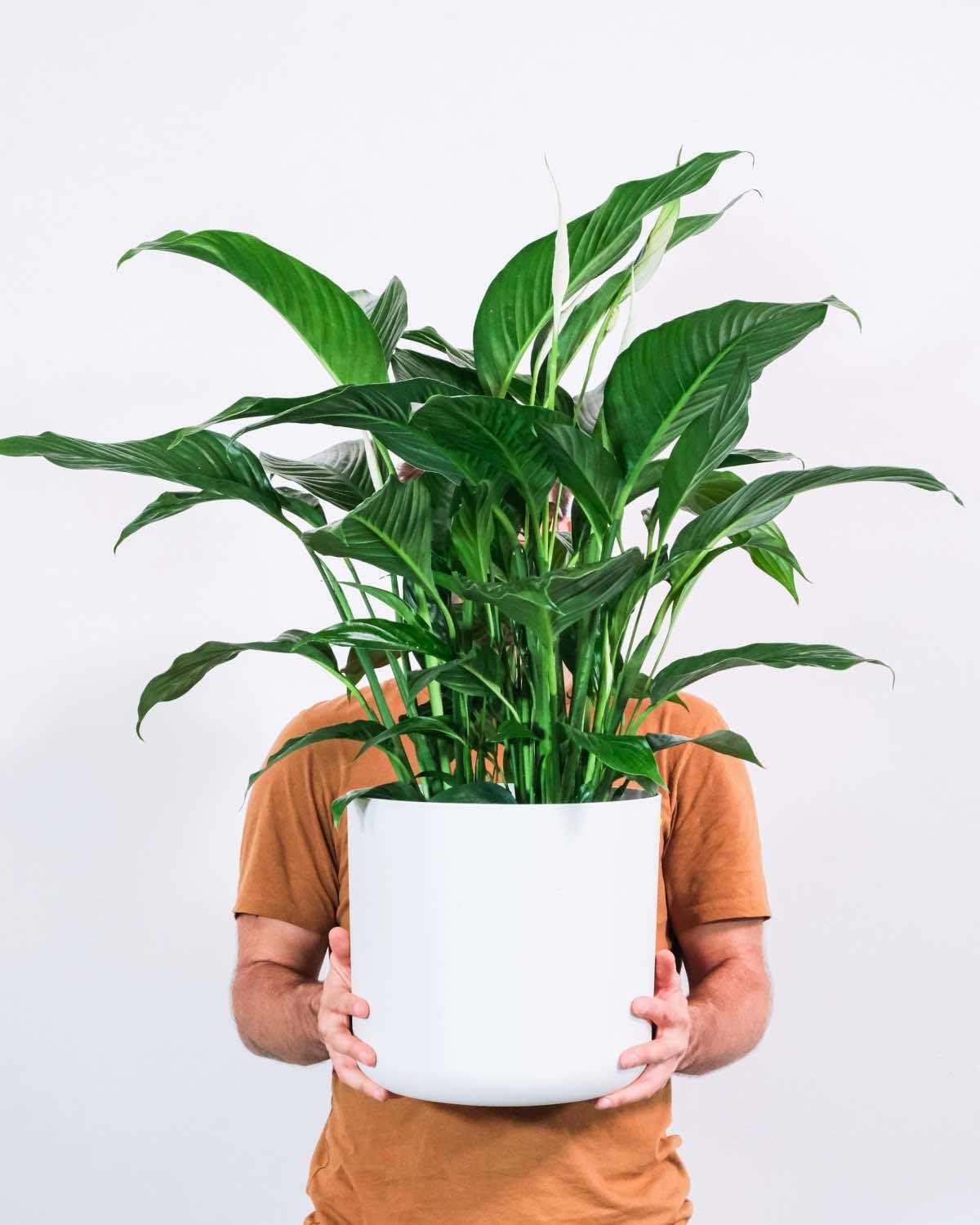

The best houseplants for decor. Images by Feey and Jacob Spaccavento on Unsplash
Sansevieria or Snake plant
Sansevieria, also known as the snake plant, is an extremely hardy indoor plant. It can survive in low-light conditions and requires very little water. Its tall, rigid leaves provide a modern and minimalist aesthetic to any space. Like many other plants, it also helps purify the air.
Red anthurium or Anthurium
The red anthurium is an eye-catching plant due to its bright red, heart-shaped flowers and dark green leaves. It’s ideal for adding color and freshness to your home, partly because of its especially long-lasting flowers. This plant thrives in environments with indirect light and high humidity, making it perfect for decorating bathrooms with windows, kitchens, or living rooms.
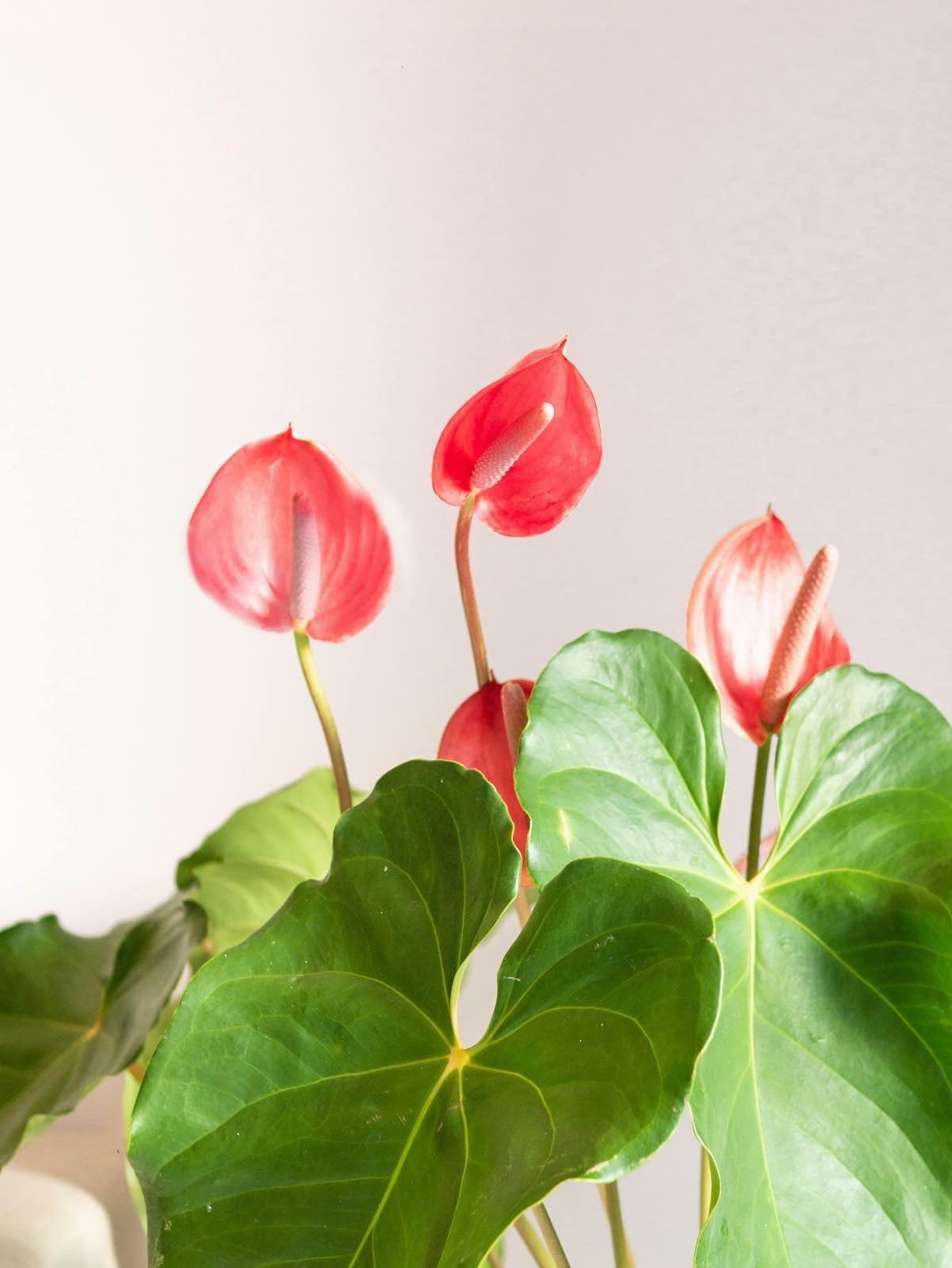
Ficus or Fiddle leaf fig
The fiddle leaf fig is one of the best indoor plants for large spaces. With its big, glossy leaves, it has become a popular addition to modern homes. It needs plenty of indirect light and regular watering to keep its leaves green and healthy.
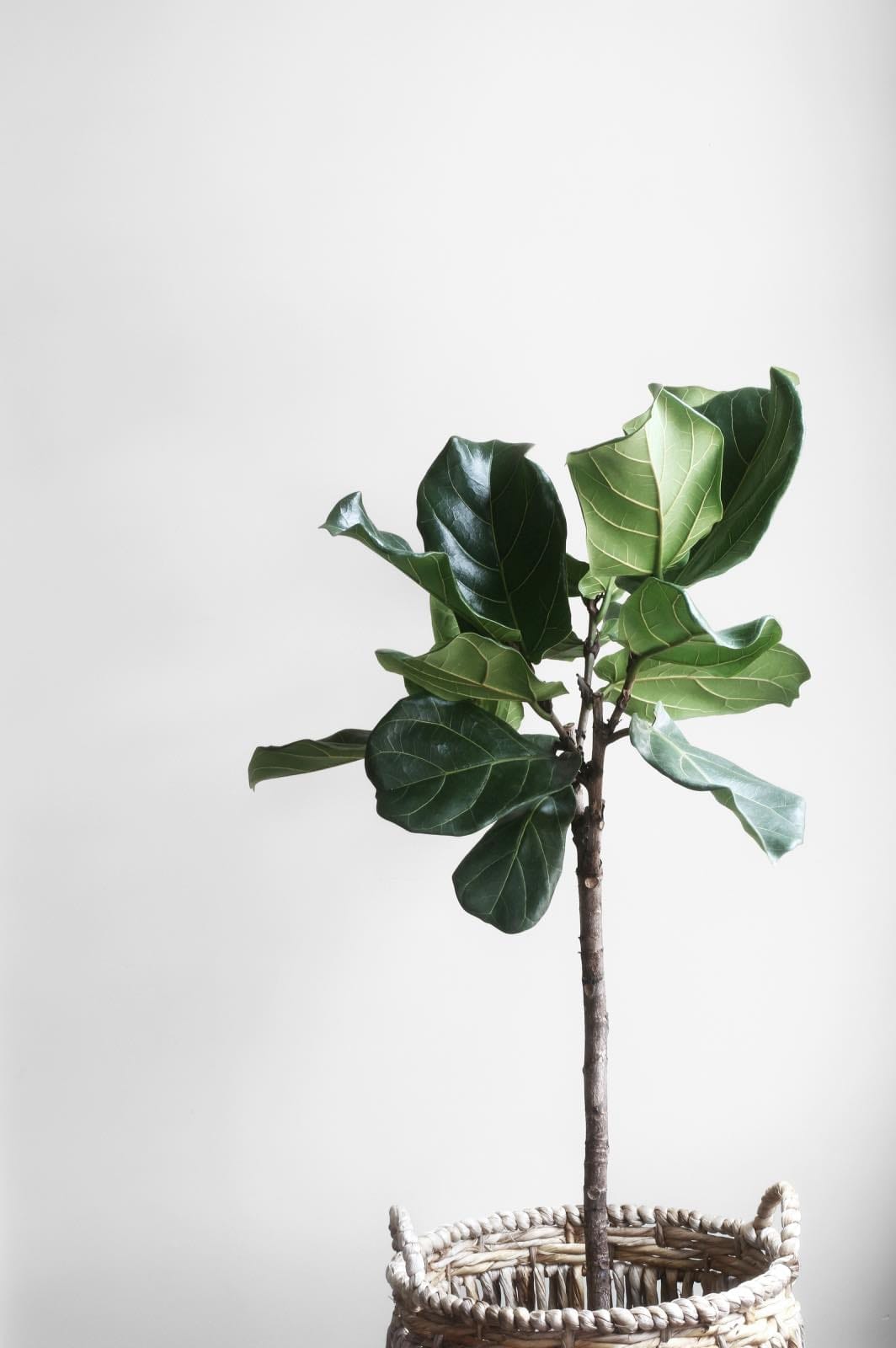
Monstera or Swiss cheese plant
The monstera, also known as the Swiss cheese plant, is an exotic species notable for its large, perforated leaves. It’s ideal for adding a tropical touch to any space. It requires basic care, such as moderate watering and indirect light, and can grow to a significant size, making it a stunning centerpiece in home decor.
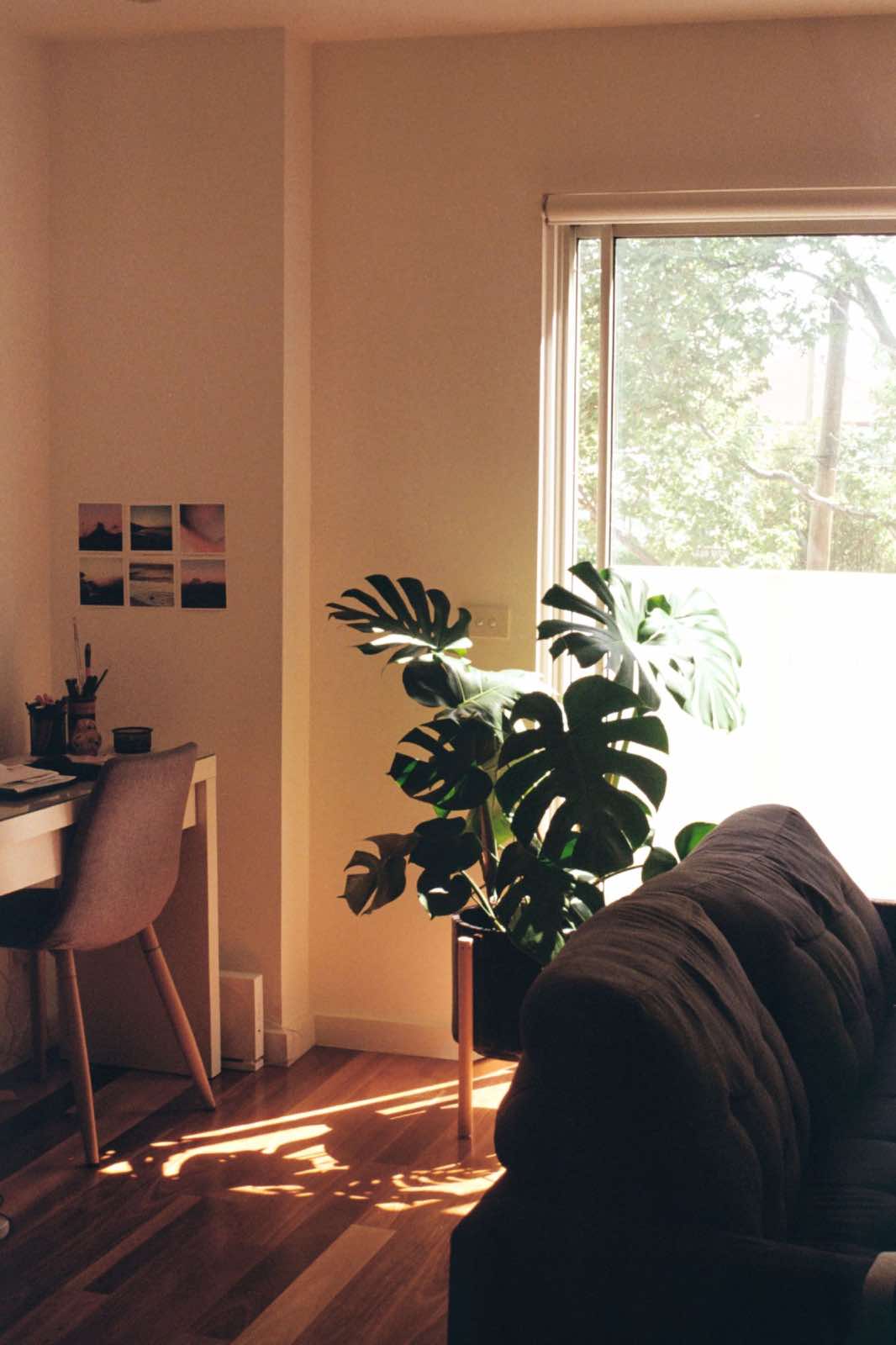
Dracaena
Dracaena is another popular plant due to its low-maintenance requirements and its ability to thrive in a variety of interiors. Its long, thin leaves come in a wide range of colors, from green to red or yellow. This indoor plant tolerates low light well and is very easy to care for, making it perfect for those with limited time or less naturally lit interiors.
Stuck on your next design move?
Let AI generate stunning layouts in seconds.
Kentia palm
The Kentia palm is an elegant and hardy plant that adds a tropical touch to any environment. It requires moderate watering and can grow in low-light conditions. Its long, arching fronds create a beautiful sense of movement. This plant can easily become a standout feature in living rooms or lobbies.
Croton
The croton is a vibrant and colorful plant known for its multicolored leaves in shades of red, yellow, green, or orange. This indoor plant is perfect for adding color to any space. It requires a good amount of natural light to keep its leaves healthy, shiny, and colorful.
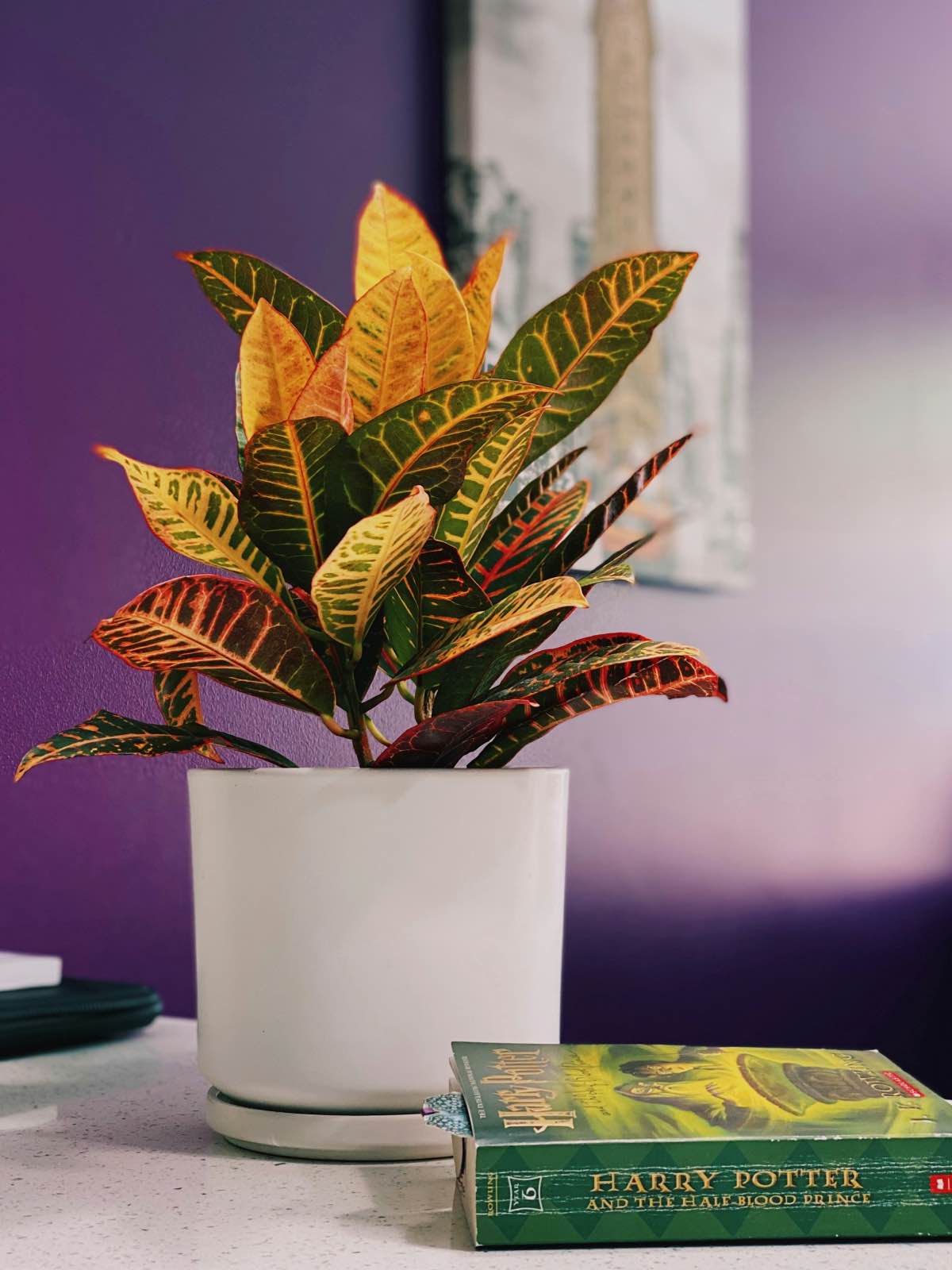
Calathea
Calathea is known for the stunning patterns on its leaves, making it a standout decorative plant. Although it requires more care than other options—such as maintaining proper humidity levels and avoiding overwatering—its striking leaves make it a focal point in any room.
Tips for beginners
For those just starting out with indoor plants, it’s important to consider the following tips before choosing the right plants for your home.
Which indoor plants grow the fastest?
Pothos, ivy, and the spider plant are some of the fastest-growing indoor plants. They adapt easily to different environments and conditions.
Which indoor plants require low light?
For low-light corners, choose plants like the sansevieria, peace lily, and pothos, which thrive even in limited natural light.
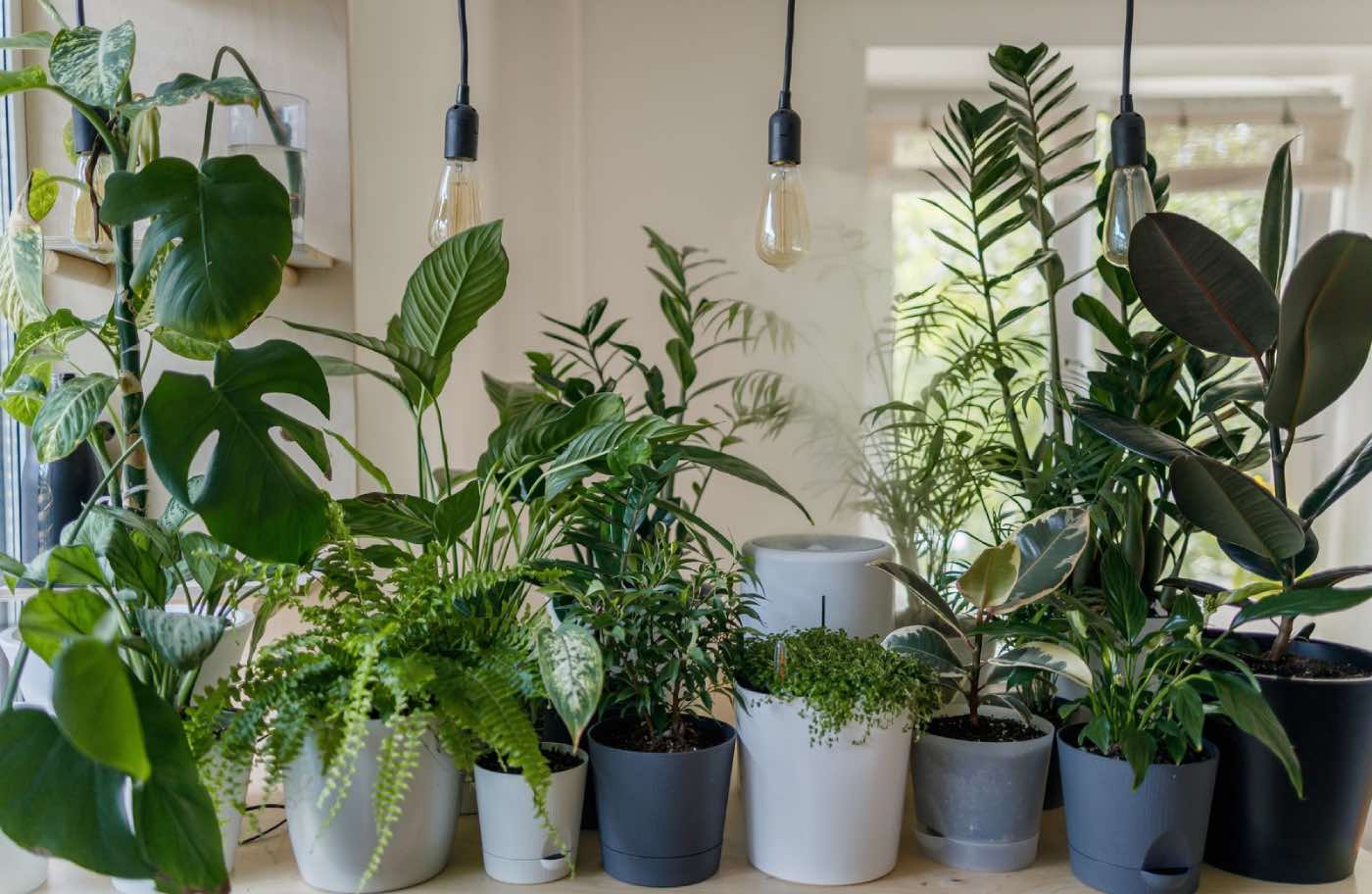
Which are the most durable and long-lasting indoor plants?
Sansevieria, aloe vera, and dracaena are some of the most durable and long-lasting indoor plants. They require minimal watering and can survive in a variety of natural light conditions.
Common problems and solutions
Here are some common issues that arise when caring for indoor plants and how to address them:
- Yellow leaves: Yellowing leaves may indicate overwatering. Reduce the amount and frequency of watering and ensure the plant has proper drainage.
- Dry leaves: This suggests the plant needs more humidity. Mist the leaves with water or place the plant near a humidifier.
- Soft stems: Soft stems can be a result of rotting, often caused by excessive water or humidity, or a lack of natural light.
- Black spots and leaves falling out: Remember that leaves have a natural lifespan and may darken, dry out, or fall off over time. However, if leaves show spots or fall off abnormally, it could indicate a problem. Dark spots on leaves may be caused by overexposure to direct sunlight or the presence of fungi or pests, which should be addressed specifically. In many cases, treatment begins by removing the affected leaves.
Indoor plants and Feng Shui
With a tradition spanning millennia, the Chinese philosophy of Feng Shui has become increasingly popular in Western interior design. Feng Shui principles value indoor plants as a source of positive energy. Certain plants, such as lucky bamboo and anthurium, are particularly recommended to promote harmony and well-being at home.

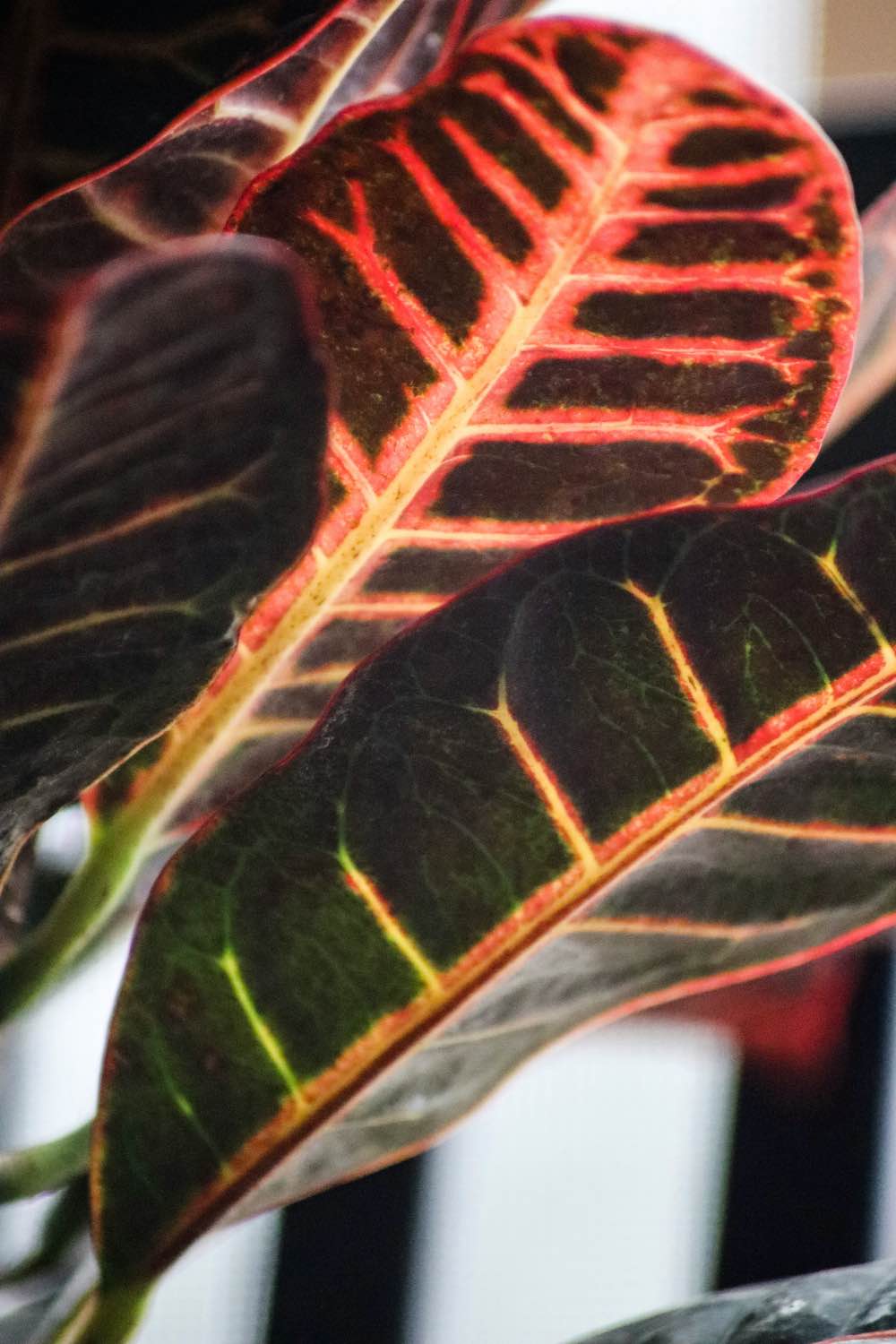
The best houseplants for decor. Images by K H on Unsplash
How to choose the ideal indoor plant for your home
When selecting an indoor plant, consider the available light, the size of the space, and your ability to care for it. If you’re a beginner, start with easy-to-care-for plants like pothos or sansevieria. For a more striking decorative touch, monstera or ficus might be the best choice for you. Of course, there are countless other options, but these are among the best indoor plants.
FAQ
What are the best indoor plants?
The best indoor plants include monstera, sansevieria, pothos, aloe vera, and ficus. They are both decorative and easy to care for.
Which indoor plants require little light?
Indoor plants that thrive in low light include sansevieria, ivy, dracaena, and peace lily.
What plants can be placed inside the house?
A wide variety of indoor plant species are suitable for home interiors. Options like ferns, spider plants, peace lilies, ivy, and crotons are adaptable to different conditions.
What plants don’t need sunlight?
Some indoor plants, such as pothos, sansevieria, and peace lilies, can thrive without much direct sunlight. However, it’s important to note that all plants require at least some natural light.
Planner 5D: The Future of Interior Design
Experience the power of AI-driven design with Planner 5D. Our innovative tools, including the Design Generator, Smart Wizard, and AI floor plan recognition, make bringing your dream home to life easier than ever. Transform your vision into reality and unlock a world of design possibilities today.
Start designing your dream home